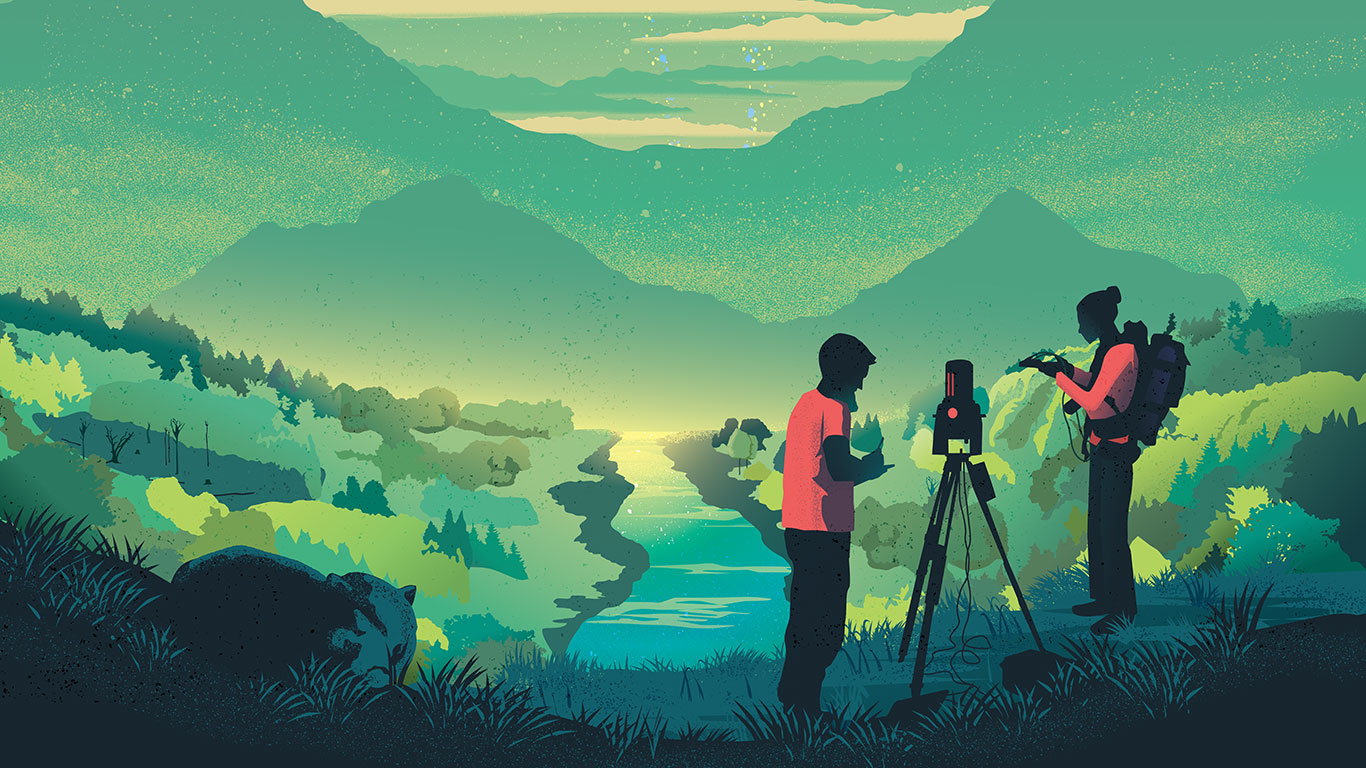News
New SPACETWIN team member
November 2025
SPACETWIN welcomes Simone Massaro to the team as the latest PhD Student. Simone is original from Italy and his background is in both forest and computer science. His main job will the using the virtual forests created by the project to perform radiative transfer simulations. The goal is improving our understanding of forest disturbances monitoring.
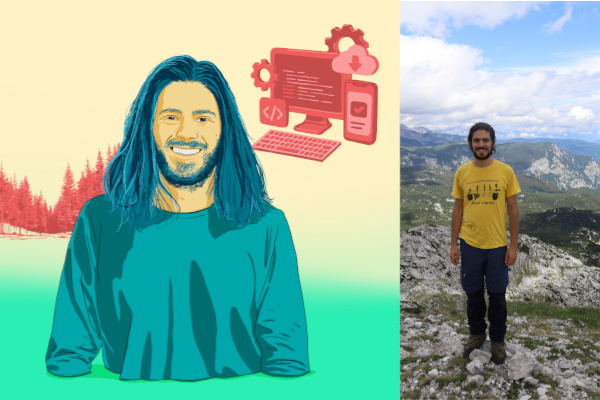
Participation Silvilaser 2025
September 2025
The SPACETWIN team was represented at the Silvilaser conference in Quebec City (Canada). Wout Cherlet presented his work on occlusion mapping and tree point cloud completion, while Kim Calders presented work on canopy laser scanning and giant trees. It was great to meet up with old and new faces in the silvilaser community and learn about the latest advances in the field.
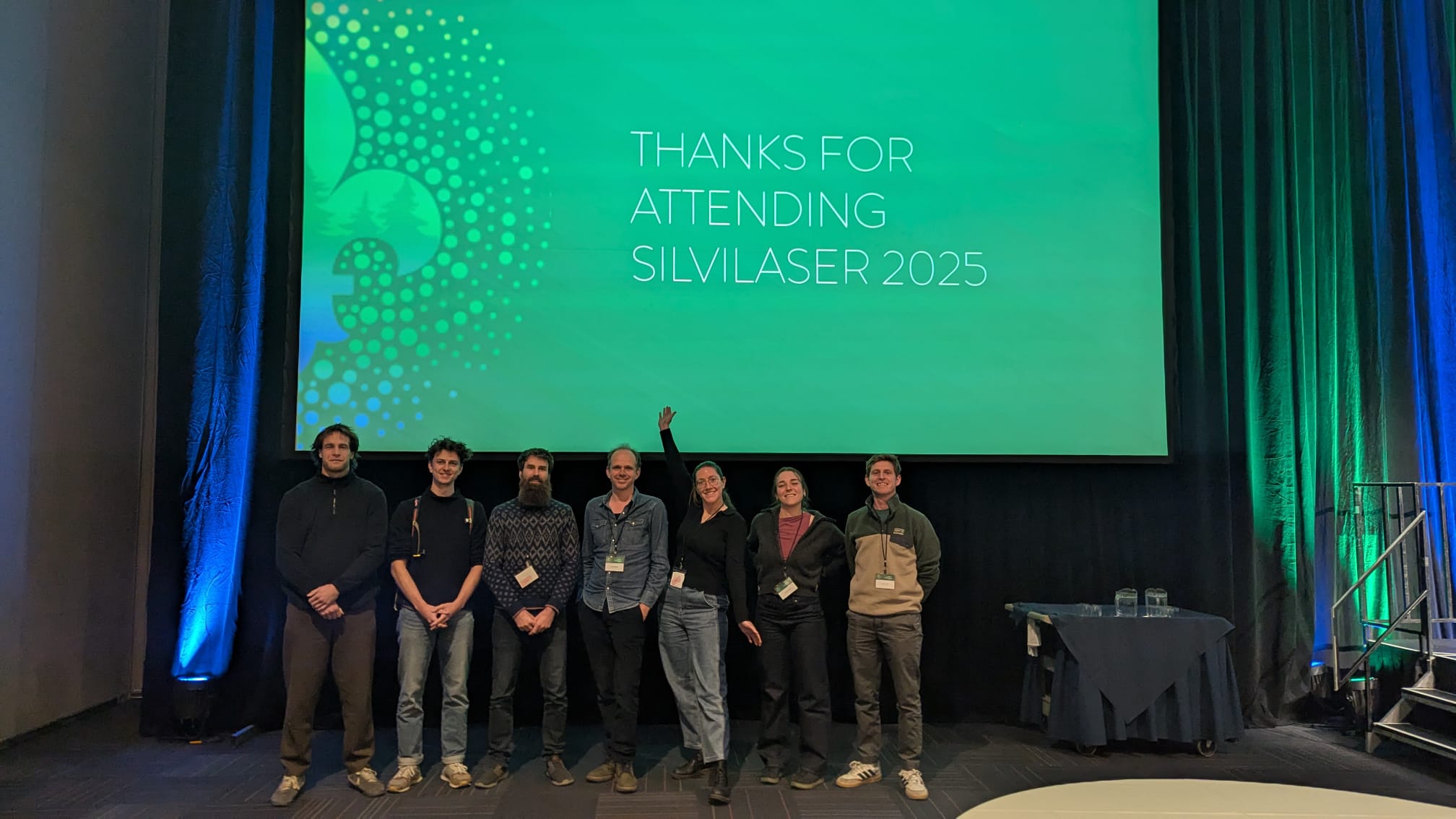
New SPACETWIN team member
August 2025
SPACETWIN welcomes Niall Origo to the team. Niall joins from the National Physical Laboratory (UK) and specialises in radiative transfer (RT) modelling of vegetation and calibration and validation of satellite vegetation products. He will be taking the data collected in the field to parameterise RT model simulations to gain greater insight for monitoring forest disturbance from satellites.
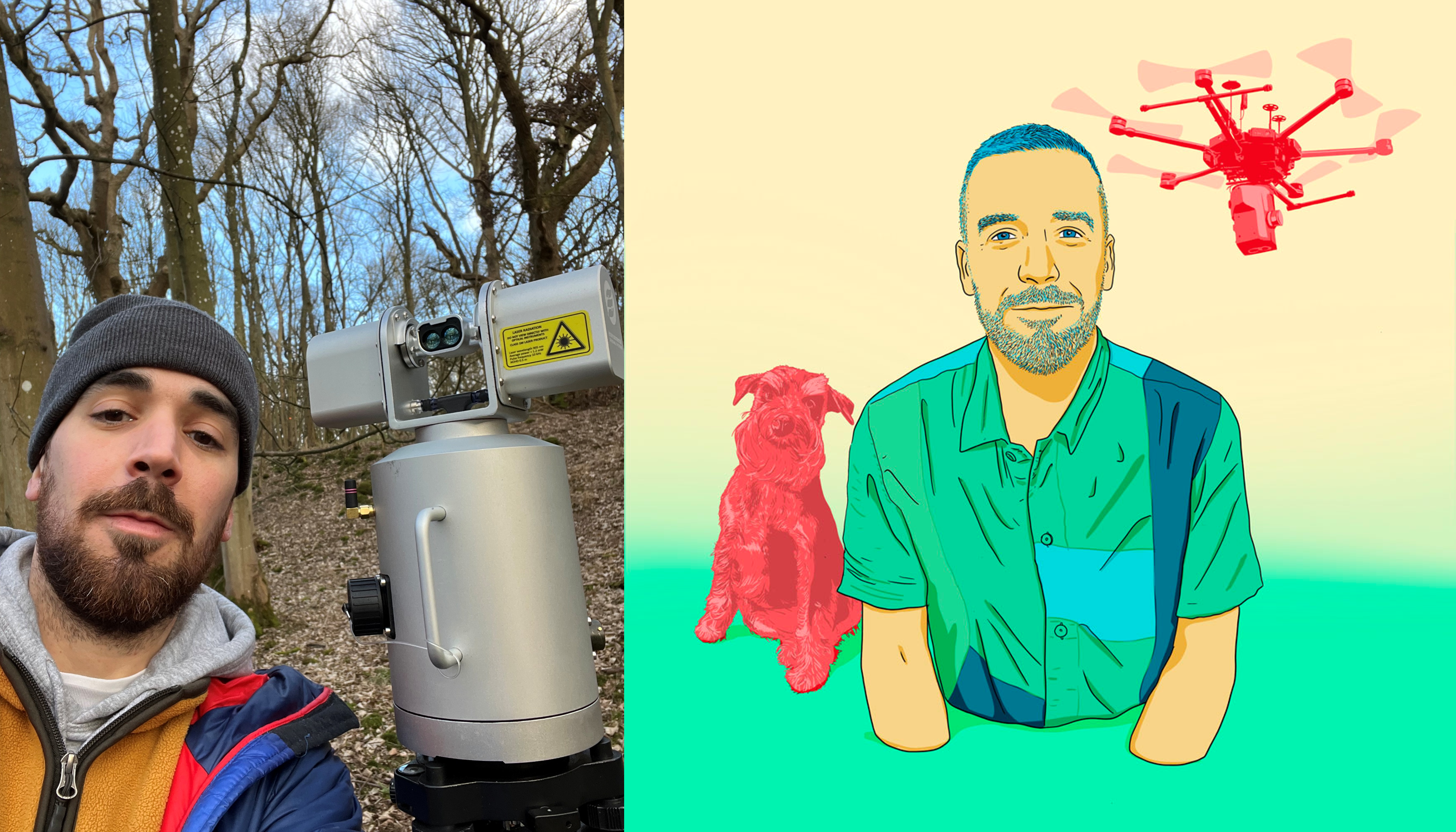
New forest monitoring network scanned in the Blue Mountains, Australia
May 2025
In the context of a new plot network in the Blue Mountains of Western Australia led by Brendan Choat from Western Sydney University, the team collected baseline terrestrial laser scanning data of 35 plots. Future field campaigns are planned to see how these forests might structurally change over time. The plot network will further incorporate cutting-edge sensor technologies that allow for real-time ecological monitoring of fauna and flora. This marks the final field campaign as part of the SPACETWIN ERC project.
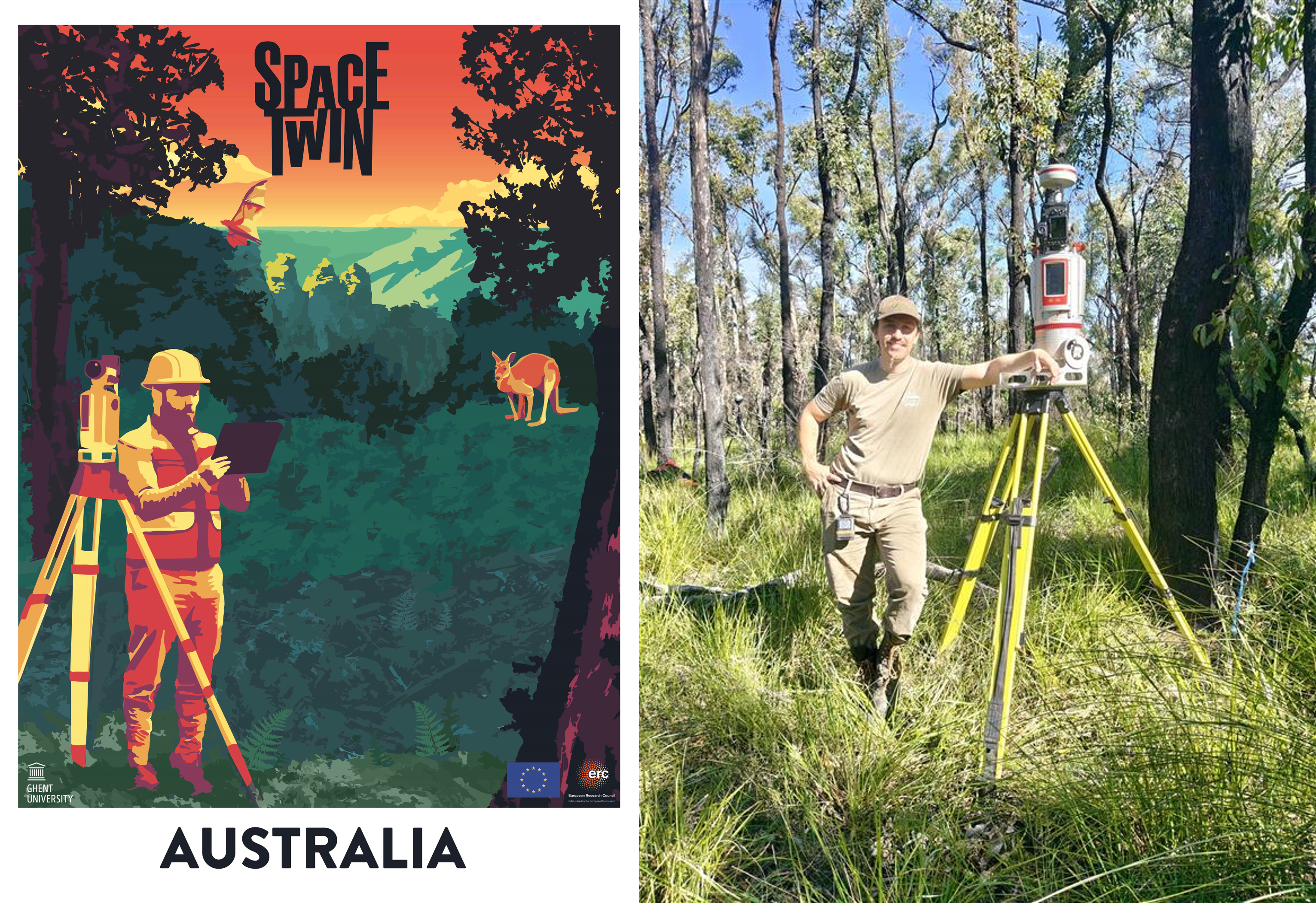
Research stay Zurich (Switzerland)
March 2025
PhD researchers Wouter Van den Broeck and Wout Cherlet spent their month March in the beautiful city of Zurich (Switzerland) for a research stay. Wouter visited the Remote Sensing Laboratory (RSL) at the University of Zurich, while Wout visited the Swiss Federal Institute for Forest, Snow and Landscape Research (WSL). Many thanks to Dr. Jennifer S. Adams and Dr. Daniel Kükenbrink for hosting and the great collaborations!
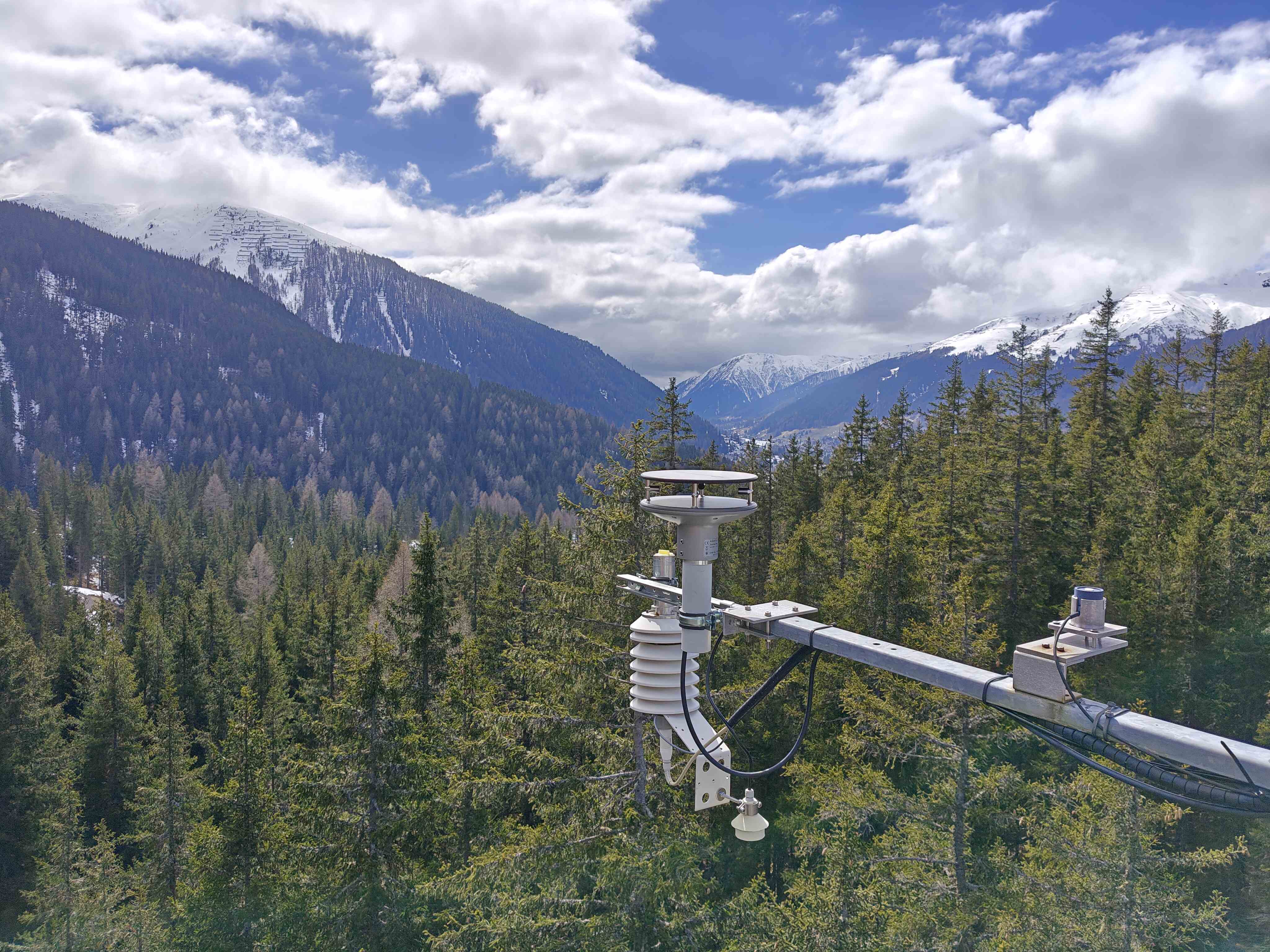
Studying caterpillar defoliation in Patagonia
January 2025
In collaboration with LabGRS of the Pontificia Universidad Católica de Valparaíso and CONAF (Corporacion Nacional Forestal), the team travelled to Patagonia national park (Chile) to study yet another form of large-scale forest disturbance: caterpillar defoliation. Massive outbreaks of catterpillars (Ormiscodes amphimone) in the months January/February disturb large areas of forest by progressively eating away all foliage encountered on their path. Long term effects of these 'apocalyptic' events in the Lenga (Notofagus pumilio) dominated forests remain understudied. The team therefore established six new 1/4-hectare monitoring plots in sector Furioso of the Patagonia national park, covering different frequencies of defoliation, and a transect in an active zone of defoliation in sector Jeinimeni. The forest plots were captured in 3D with terrestrial lidar, the optical reflectance of the leaves, bark and understury was measured using a spectroradiometer, and multispectral nadir drone images were collected.
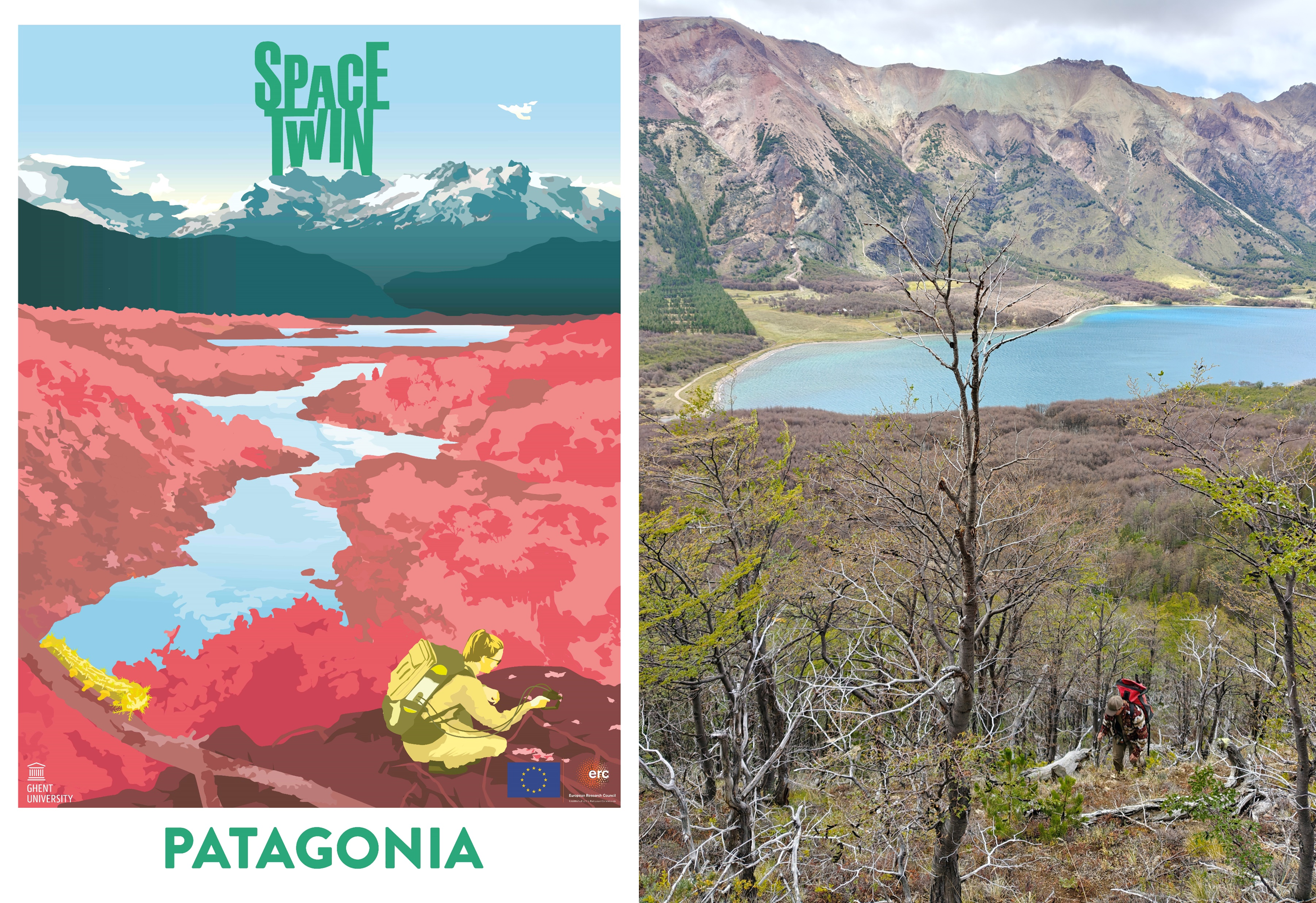
Rescannig the Caxiuana Amazon drought experiment
November 2024
Wouter Van den Broeck and Wout Cherlet revisited the Amazon drought experiment in Caxiuanã national park (Para, Brazil) to continue the terrestrial lidar time series. The timing coincided with the end of this historic experiment, by removal of the panels in the drought plot after 23 years. The research site now becomes a drought recovery experiment.
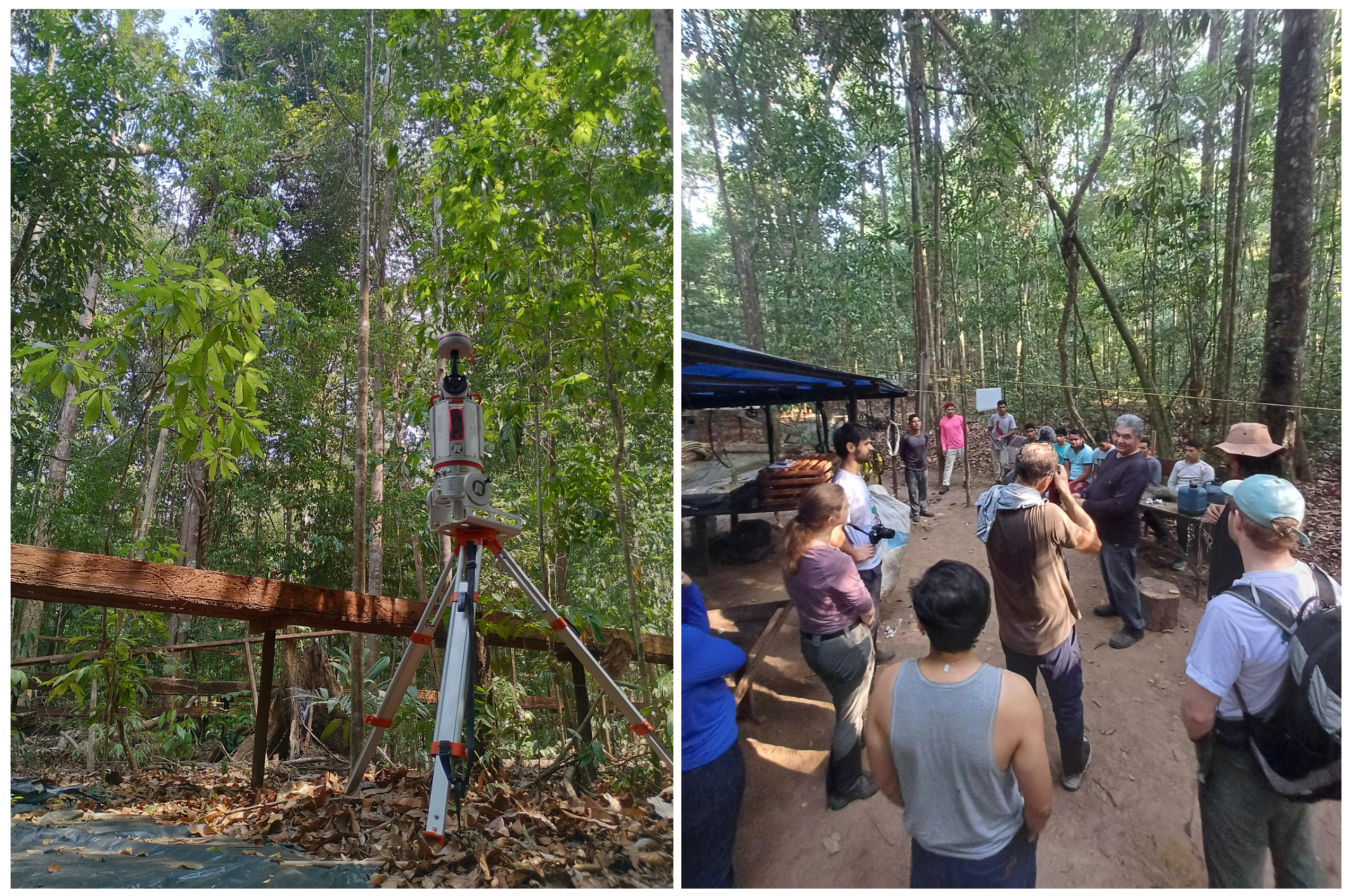
Attendance ForestSAT 2024
September 2024
Zane Cooper and Kim Calders attended ForestSAT 2024 in Rotorua, New Zealand to present ongoing work. Zane had a poster presentation on benchmarking different QSM algorithms. Kim presented on several projects from the lab around multi-scale lidar, including spacetwin.
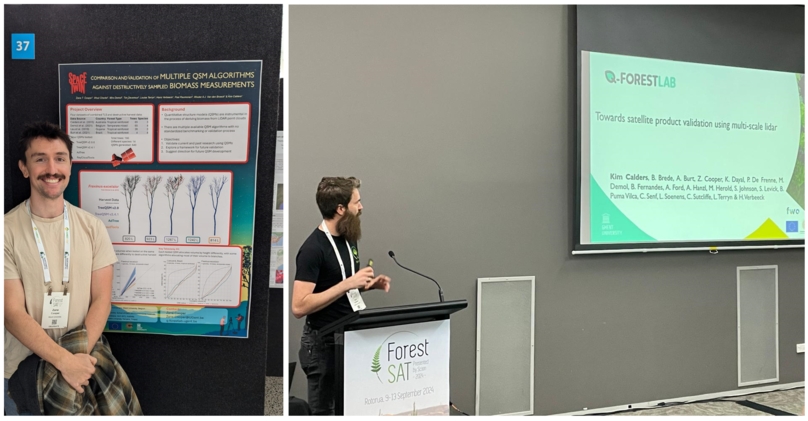
IGARSS symposium in Athens
July 2024
PhD researcher Wout Cherlet presented his work at the 2024 IEEE International Geoscience and Remote Sensing Symposium (IGARSS) in Athens, Greece. His presentation was centered around the results of benchmarking several instance segmentation algorithms on the Wytham Woods dataset.
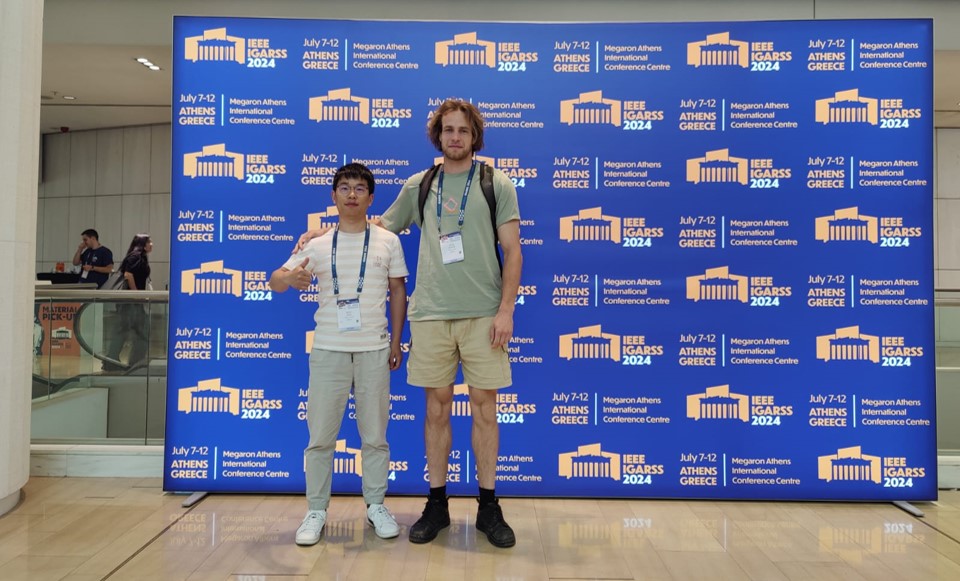
Research presented at EARSeL conference in Valencia
April 2024
In the beginning of April, PhD researcher Wouter Van den Broeck participated in the EARSeL workshop on imaging spectroscopy in Valencia (Spain). He presented preliminary results from the Caxiuanã field campaign on combining terrestrial laser scanning and field spectroscopy for upscaling drought disturbance monitoring.
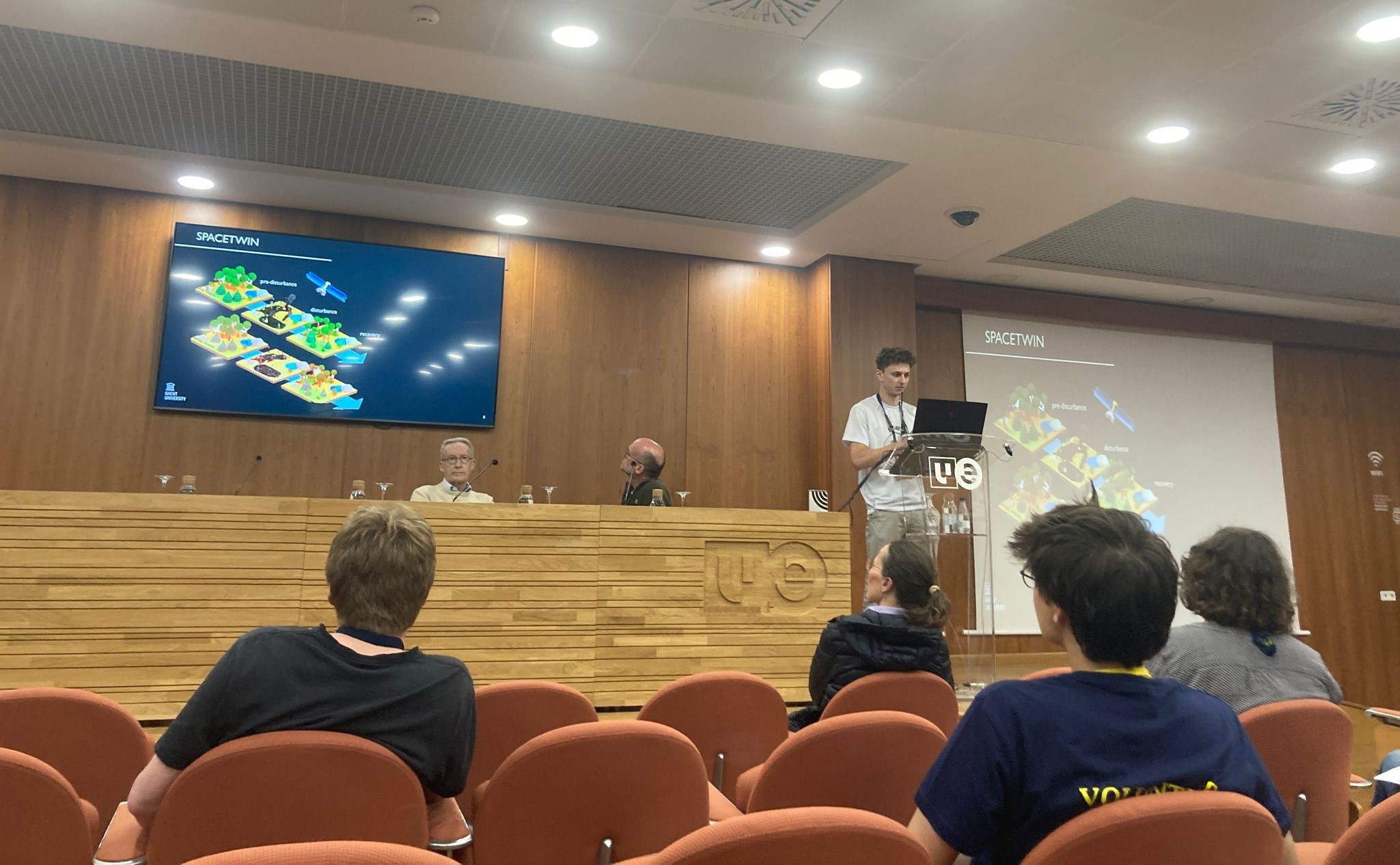
Scanning giants in Tasmania
January 2024
We had a great time in Tasmania (Australia) last December with Arko Lucieer and Leonard (University of Tasmania) mapping giant and old trees for ERC SPACETWIN. We managed to scan 10 giants (with some well over >80m height). We got great support from Steve & Jen from the tree projects, who made sure we could work with a team of professional climbers to get our RIEGL safely in the tree.
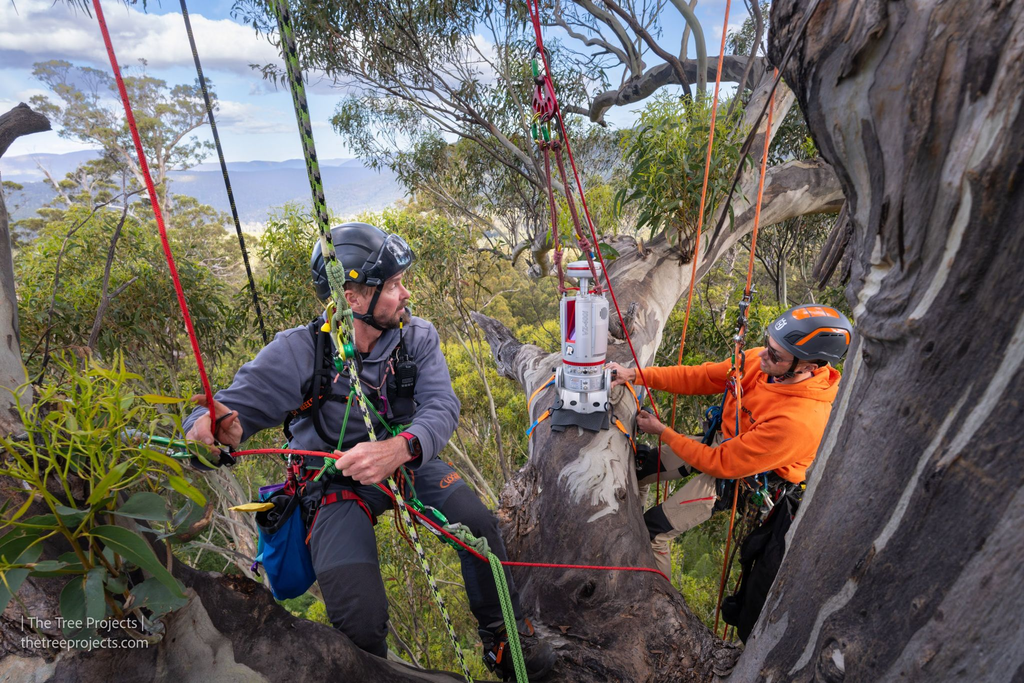
Successful field campaign to Amazon drought experiment
October 2023
Our team recently wrapped up a challenging but rewarding field campaign in Brazil's Caxiuanã National Forest. Overcoming the hurdle of a 24-hour boat journey on the Amazon, we successfully transported our pile of equipment to the field station. Armed with a terrestrial laser scanner and field spectroradiometer, we conducted 3D scans of a 1-hectare forest control and simulated drought plot, and measured the spectral properties of leaves, stems, and ground. This effort will provide us with important knowledge on how the Amazon forests will respond to increased drought stress. Stay tuned for insights from this expedition! Special thanks to the amazing individuals from Edinburgh University (UK), Universidade Federal de Para and Museu Paraense Emilio Goeldi (Brazil).
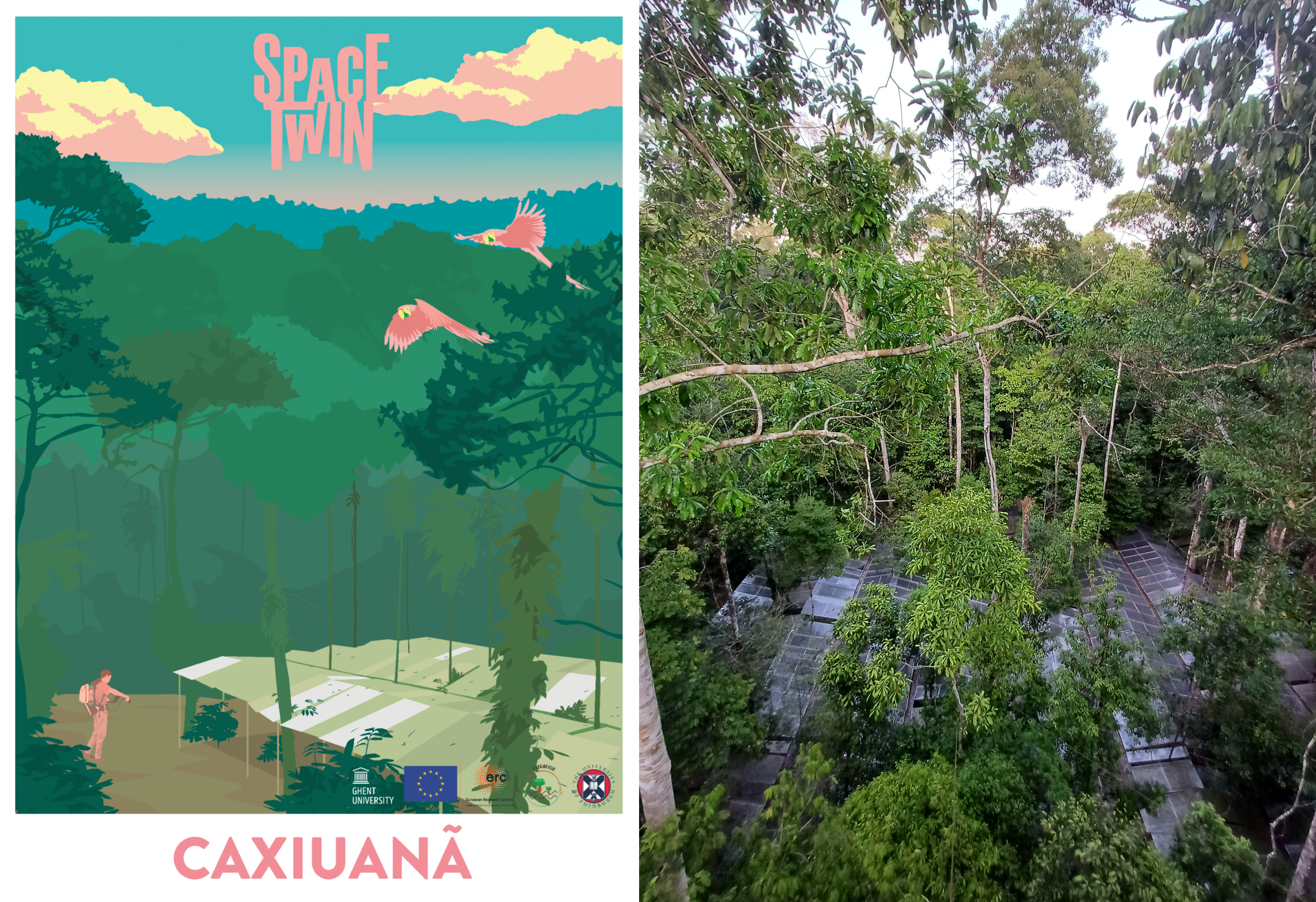
New research plots established and scanned in Bosland
September 2023
A new collaboration has been set up between Q-ForestLab and Bosland national park (Belgium)! Over the summer, we established four new 1ha plots covering different environments within the forest. By now, the team has scanned all plots in 3D for a first time, and installed a total of 64 microclimate loggers. Learn more in this article on the Boslab website!
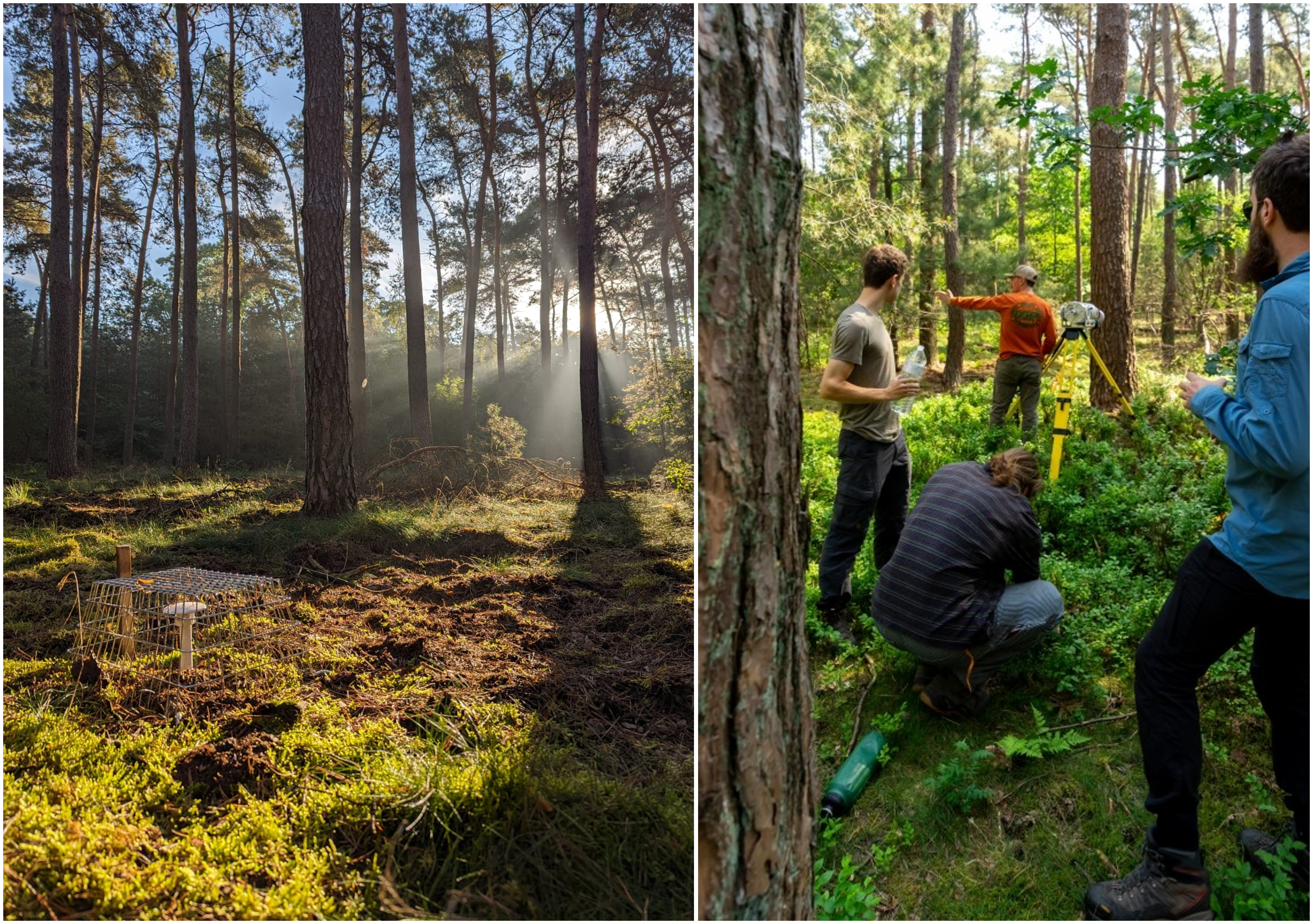
Team presents ongoing research at Silvilaser and ISPRS Geospatial Week
September 2023
During the first week of September, PI Kim Calders and PhD researchers Zane Cooper and Wout Cherlet presented their ongoing research within the SPACETWIN project at Silvilaser in London (UK). Topics included StrucNet, deep learning for instance segmentation of forest point clouds, and the validation of quantitative structure models against destructively sampled trees. At the same time, PhD researcher Wouter Van den Broeck presented his work about 'Three-dimensional deep learning for leaf-wood segmentation of tropical tree point clouds' at the ISPRS Geospatial Week in Cairo (Egypt).
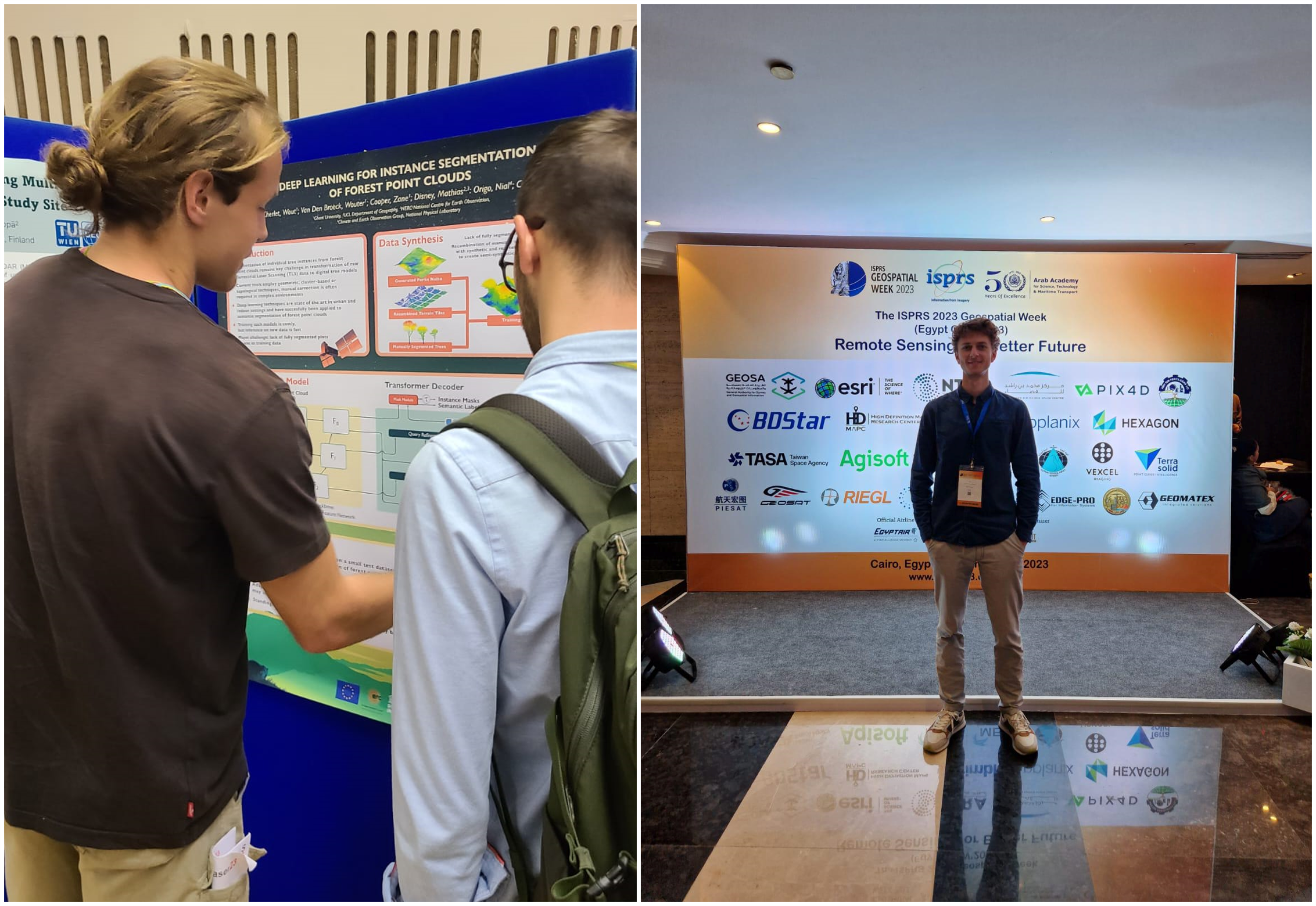
Fieldwork Berchtesgaden completed
July 2023
In collaboration with the 'Ecosystem dynamics and forest management in mountain landscapes' research team from TUM, we succesfully completed an intense fieldwork campaign in the Berchtesgaden national park (Germany). A total of four 1-hectare plots were scanned, for which the team had to cross lakes and conquer mountains. The data will be part of a multi-year dataset, allowing us to investigate forest dynamics and disturbances, including the recent bark-beetle outbreak.
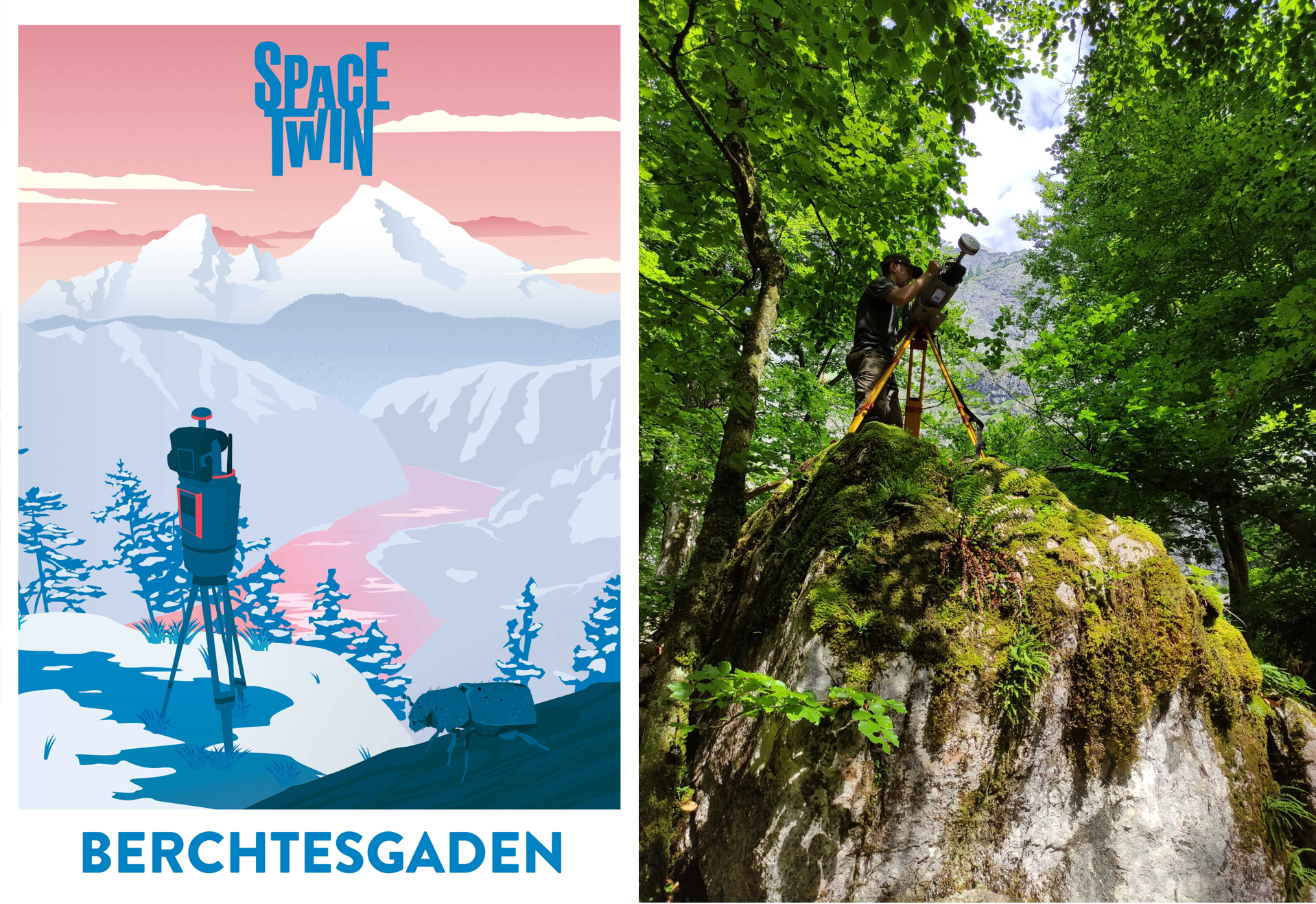
SPACETWIN project presented at ESA PolInSAR & BIOMASS
June 2023
Last week, PhD researcher Wouter Van den Broeck gave a presentation on the topic "Terrestrial Laser Scanning has Potential to Support Cal/Val Activities of Radar Biomass Estimates" at the ESA POLINSAR & BIOMASS conference in Toulouse (France). A great oppurtunity to present the SPACETWIN project to the radar-community!
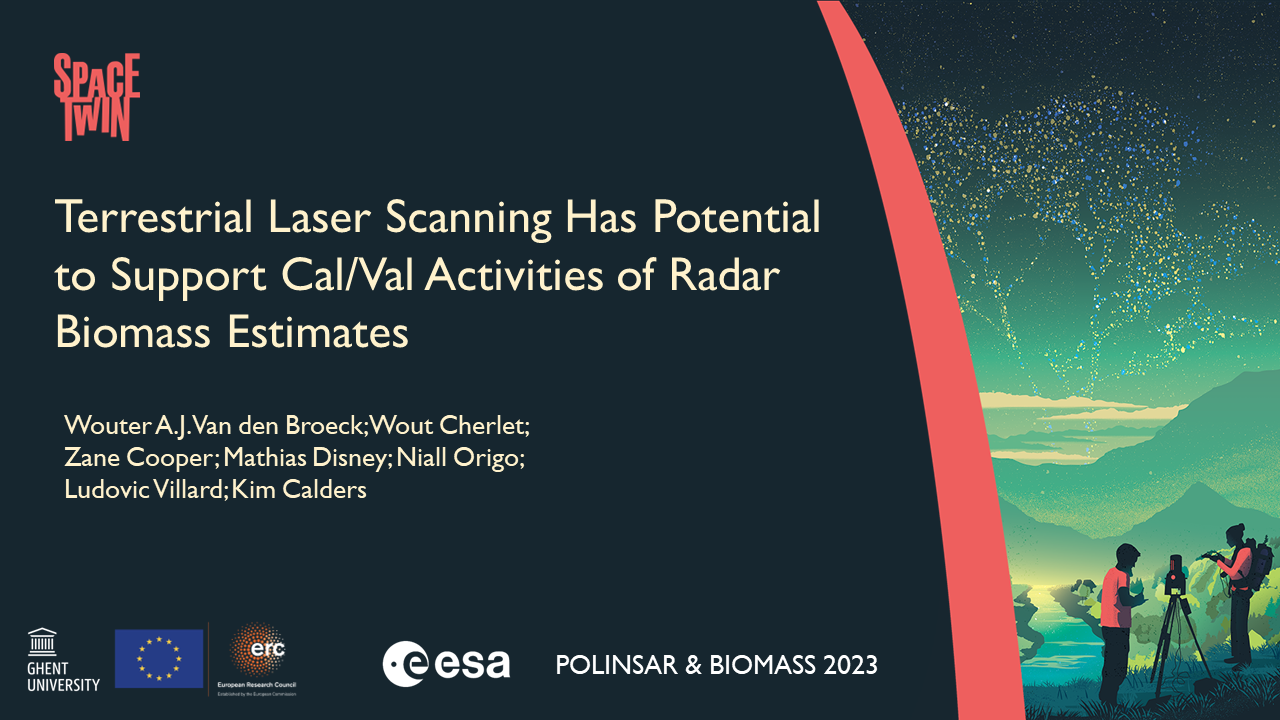
First SPACETWIN paper published
April 2023
Check out our new publication where we propose "StrucNet: A global network for automated vegetation structure monitoring": https://doi.org/10.1002/rse2.333
The team is complete!
March 2023
With the arrival of PhD researcher Zane Cooper and the start of graphic designer Kenneth Cools the core SPACETWIN team is now complete. Bring on the science!
